Christianity, Diversity, And Speculative Fiction
 Unlike its antecedent, Judaism, Christianity is culturally diverse. Jesus Himself turned the notions of the Jewish elite on their heads in any number of ways.
Unlike its antecedent, Judaism, Christianity is culturally diverse. Jesus Himself turned the notions of the Jewish elite on their heads in any number of ways.
He targeted simple fishermen to be his disciples, for example, instead of going after the more learned scholars. He showed no political bias, either, including among his disciples a zealot and a tax collector. Simon, as a zealot, would have been focused on the overthrow of Roman rule. Matthew, as a tax collector, would have been bent on cooperating with Rome and serving their interests (as well as his own).
Jesus showed no favoritism toward the rich or powerful, though he did not refuse to engage them, challenge them, and invite them to be His followers (see Nicodemus and the rich young ruler). At the same time, He included the most marginalized in society as those He singled out—a leper, a blind man, a woman with a hemorrhage, a group of children, a prostitute, a Samaritan woman, a lame man, a demon-possessed outcast.
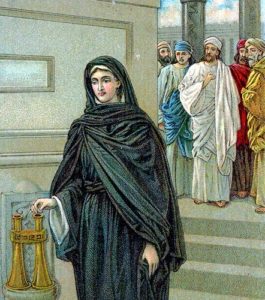 Finally, Jesus showed no gender bias. He commended the poor widow for her generous giving, for instance, but chastised the men in the temple who were turning God’s house into a “den of thieves.” In addition, he gave no preference to men over women when it came to meeting people’s needs. While He didn’t name any women as His disciples, clearly a group of women were among those who followed Him, supported Him financially, and who He encouraged to learn from Him, as evidenced by His telling Martha that Mary, in choosing to listen to His teaching had chosen the better activity.
Finally, Jesus showed no gender bias. He commended the poor widow for her generous giving, for instance, but chastised the men in the temple who were turning God’s house into a “den of thieves.” In addition, he gave no preference to men over women when it came to meeting people’s needs. While He didn’t name any women as His disciples, clearly a group of women were among those who followed Him, supported Him financially, and who He encouraged to learn from Him, as evidenced by His telling Martha that Mary, in choosing to listen to His teaching had chosen the better activity.
Christ’s example is expanded in the early Church, both by experience and by instruction. First, through the Holy Spirit’s work, Peter came to understand that God’s grace extends to Gentiles as well as to Jews. After a vision from God, he preached to a group of Gentile seekers who God led to him. When the Holy Spirit manifested Himself in the same way He had at Pentecost to those Gentiles who believed, Peter understood that there was no difference between Greek and Jew.
Consequently, Paul’s work among Gentiles received the approval of the leadership of the Jerusalem church; Philip, in obedience to the Holy Spirit, preached to an Ethiopian eunuch; Timothy, with mixed parentage, became a pastor.
Women were also prominent in the early church. Lydia, a significant person in her community, was one of Paul’s first converts in Europe. Timothy learned about God from his mother Eunice and grandmother Lois. Paul referred to two Philippian women, Euodia and Syntyche (who he admonished to live in harmony), as fellow workers. In Colossians he greeted Nympha who apparently hosted a church in her house. John and Paul both addressed letters (3 John and Philemon, respectively), at least in part, to women.
The rich/poor divide was also something the early church disregarded. Paul declared that slave and free were equal in Christ. James taught that believers were not to give the rich special considerations or to treat the poor as second class.
Paul’s traveling companions included people like Secundus—Second; the book of Romans was penned by an amanuensis, or secretary, named Tertius—third. These are possibly designations given to slaves. Paul wrote the book of Philemon on behalf of a runaway slave who had become a believer, referring to him as his “child” and “beloved brother.”
These examples are buoyed by Paul’s clear teaching:
there is no distinction between Greek and Jew, circumcised and uncircumcised, barbarian, Scythian, slave and freeman, but Christ is all, and in all. (Col. 3:11)
Diversity marked Christ’s ministry and has been a hallmark of the Church from early on. Today Christianity encompasses any number of people groups, largely because believers take seriously God’s commission to make disciples of those at home, nearby, and far away. Bible translation efforts have been fueled by Scripture which says in heaven there will be members of every tribe and tongue, coupled with Paul’s question, How can they believe unless they hear?
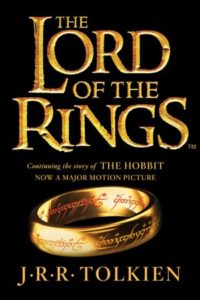 So here’s my question. In what way does Christian speculative fiction reflect the diversity of the faith? Among the great things J. R. R. Tolkien accomplished in his epic Lord of the Rings trilogy was a reflection of Christian diversity. The Fellowship included a dwarf, hobbits, an elf, a wizard, and two men.
So here’s my question. In what way does Christian speculative fiction reflect the diversity of the faith? Among the great things J. R. R. Tolkien accomplished in his epic Lord of the Rings trilogy was a reflection of Christian diversity. The Fellowship included a dwarf, hobbits, an elf, a wizard, and two men.
As some have liked to point out, Tolkien’s weakness was his inclusion, or near lack thereof, of women. C. S. Lewis did a better job in that regard, though he also has his critics because of his treatment of Susan in the end of the Narnia series.
Apart from the masters, how diverse is today’s Christian speculative fiction? Does it reflect the diversity of the Christian faith? How can those of us who are writers do so without appearing to have nothing more than a token “other race” character?
I’d love to hear of examples of either fantasy or science fiction that get it right and how, in your opinion, they pulled it off.
































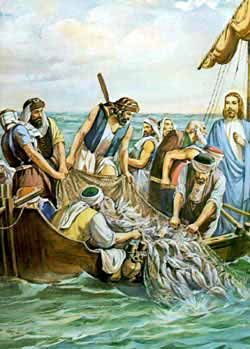

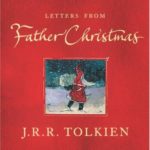

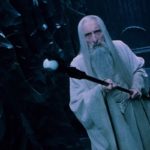




I think when a story is truly engaging, I don’t notice the lack of women or men or children. Whatever. TLOTR was like that for me. I’ve read it several times and never really noticed there weren’t that many female characters until someone pointed it out. But this got me thinking of some contemporary spec novels. I read A Cast of Stones by Patrick Carr and it was intriguing, gripping and totally engaging. But when I think back on it, there aren’t too many strong female characters. By the end of the story, there’s only one female who is obviously going to play a bigger part in the series. And you know what? It didn’t bother me at all. It was a great story, and that’s more important to me than if there’s an equal amount of genders represented.
Growing up, I read and loved many fantasy classics with an all or mostly male cast, and felt no sense of being slighted or excluded by them. Reading LotR as a child, I loved Eowyn so much that she seemed to play a much larger role in the story than she actually does; and the Narnia series had spirited and active female characters like Aravis, Polly and Jill to content me. It hardly seemed to matter that in both LotR and most of Narnia, as well as in other beloved classics of my youth like Lloyd Alexander’s Prydain Chronicles and Susan Cooper’s The Dark Is Rising series, it was always the boys who were really driving the story. (The only exception that leaps to mind would be George MacDonald: his books THE PRINCESS AND THE GOBLINS and THE LOST PRINCESS both feature female leads — and not tough warrior women either, but ordinary little girls.)
When I got into my teens and started reading more “grown-up” fantasies, however, I started to notice a disturbing trend. The smart, engaging, dynamic girl characters I’d loved in children’s literature had almost completely vanished, and been replaced by sultry temptresses, buxom barmaids, and icy sorceress-queens. When the occasional ordinary but brave young woman ventured into a story, she was often kidnapped and held as a prize for the hero’s rescuing — if not raped and/or killed in order to provide more incentive for the hero to fight the bad guy(s). It certainly didn’t seem as though many of these epic fantasy writers really believed that women were people in their own right, or that they might have stories worth telling.
On the other hand, I didn’t care for the heavily anti-male, goddess-worshipping type of fantasy either, and for a while it seemed like that was what most of the female fantasy authors I knew of were doing. I might have given up on reading fantasy altogether if I hadn’t discovered Pamela Dean, Patricia C. Wrede and Patricia A. McKillip, who reassured me that yes, it was entirely possible to write interesting and sympathetic stories about female characters without turning their stories into a rant against the Patriarchy.
These days, though, I think some of the best and most interestingly diverse fantasy casts are in YA fantasy novels. Megan Whalen Turner, for instance, writes wonderful male and female characters and gloriously twisty plots without falling into any of the usual stock fantasy cliches. Elizabeth Wein’s Aksum series blends Arthurian legend and ancient Ethiopia in a fascinating and compelling way. I feel like over the past thirty years I’ve read enough stories about humbly born able-bodied white boys discovering they are the Chosen One of Prophecy and setting out to save a vaguely Celtic fantasy world to last me a lifetime; it’s refreshing to see stories about women, stories that feature characters with a disability (and not just in an “inspirational” way), and fantasy worlds based on non-European or Western settings. I don’t think that’s tokenism or political correctness or what-have-you: I think it shows the writer actually has some imagination and original thought, and isn’t just copying the Standard Fantasy Template they grew up with.
Thank you! I totally agree about the change of the female character. Every “strong female lead” ends up being sexy, manipulative, or aggressive. Rather than using “strong” to represent the strength of personality, good writing, or detailed character, it’s used to mean “a girl who does something like a man”. I’m nearly finished with my novel, and I include characters who are representative of female strength in different ways (you can read a brief blurb about them on my blog). I have sexy and aggressive sea captain, a gentle yet confident healer, the motherly young woman who helps others and undervalues herself, the lonely little girl who just wants to find her place and make a difference, her shy friend who romanticizes everything. They are all different, all strong, all feminine.
Also, my name is Éowyn. XD
I think a writer has to be deliberate about inclusiveness or else it just falls by the wayside.
One of my criticisms of A Star Curiously Singing is that it criminally underutilized the main (only) female character when there were wide, golden fields of literary opportunity for her to frolic in. And I think it happened because it just didn’t occur to Whatshisface what he could have done with her, so he just stuffed her in the Fridge. I think HardCandy could have easily made a better main character than SandFly–if only because she’s substantially more underdog than he is in their culture and has more to overcome.
Whatsyourface, I suppose I should warn you that I might, maybe, someday become motivated enough to entirely rewrite, retconn, and basically cannibalize that book/series of yours to feed my own literary agenda.
Of the many things I enjoyed about Jill Williamson’s Blood of Kings series (By Darkness Hid) was the diversity of characters and characters’ dialects that she created. By the end of the series I knew what part of the country a character came from just by the way s/he talked. Great story.
I’m still not completely clear how i feel on this topic. Some of my favorite books – The Hobbit, Watership Down – feature male-dominated casts. Yet at the same time i know there have been books that have frustrated me because of the lack of female characters.
Similarly, some books (the Heroes of Olympus series by Rick Riordan comes to mind) are a bit too obviously diverse. It comes across as diversity for diversity’s sake, at least to some degree, and is just as grating as an unnecessarily all-white all-male cast. There are other books (Steelheart, by Brandon Sanderson) that have a varied cast but somehow it feels more natural.
The obvious answer is that some writers are better than others, but i wonder if there’s more to it than that.
Anyway. I think it’s definitely possible to make diversity too big or too prominent an issue, but in fiction – particularly speculative fiction – there’s really no excuse for making a cast completely homogeneous, unless you’re writing about an ethnocentric boys’ boarding school or something.
I generally don’t care about the gender of mcs/protagonists, though I can smell “enforced” diversity a mile off and find it worse than unnaturally bland casts
My own writing is character-driven, so if a female character doesn’t present herself to be written about, there will be no female characters. Same with the males.
I think there’s a lot of secular fantasy out there that tends to turn women into objects of sexual desire or Amazonians, neither of which is particularly believable. The few Christians who write speculative fiction tend to either consign women to a housekeeping role or avoid them altogether unless they’re a victim for the males to rescue.
Saying that, though, I think there are some indie Christian authors out there who are writing believable women in fantasy who are not victims. Which makes you wonder if it’s the Christian writers that have a problem with female characters in fantasy or the publishers.
I think you miss the mark when referencing Tolkien.
Tolkien didn’t set out to write something intentionally reflecting Christianity, and he specifically said the book was not allegorical (though we can clearly see elements of his Christian faith shining through). What he did set out to do was create a distinctly English folklore, or mythology. In order for the tale to be believable, you can’t simply include every individual thing someone might like to see.
It is far more realistic to imagine a group of adventurers like the fellowship coming together (despite potential differences) to protect their land. They all have one thing in common: they are male. One of the traditional roles of being a man involves protecting those you love, and sacrificing for them. Frodo accepts the ring because he might be the only person who can do it. Sam’s loyalty brings him along. Pippin and Merry are cousins to each other and to Frodo. They get caught up in the action. Legolas has a stake in the journey as prince of Mirkwood. Aragorn (obviously) is the rightful heir of Gondor. Boromir is the steward of Gondor. It wouldn’t have made sense for any females to come along. They cannot physically do any more than any of the other men do, and in this semi-Medieval time, their place was at home caring for the children.
Galadriel plays a role in equipping the men to go out and fight evil (some might say in a motherly sort of way, like women today prepare their men to go out into the world without them). Éowyn saved the day by killing the Nazgul, but she did not neglect her duty to her people; she saw them safely to Helm’s Deep. Arwen hands things to Aragorn. I understand why they gave her a bigger role (playing up the romance), but she essentially is a support character to Aragorn, one of the reasons he keeps fighting. It wouldn’t fit the story Tolkien was trying to write if he had added more women simply for the sake of diversity.
Also would like to note that everyone was white, except for perhaps the Haradrim and other Eastermen. Why? Because this was a distinctly English folklore. The people did look different (Saxons in Rohan as opposed to the more swarthy men of Dale) but to include races that would not have been in England in the past doesn’t make sense any more than it makes sense to send a woman on an arduous journey into dangerous situations.
A lack of “diversity” doesn’t mean negative discrimination. Not every tale has to be about everybody.
Ps. Yes, my name is Éowyn.